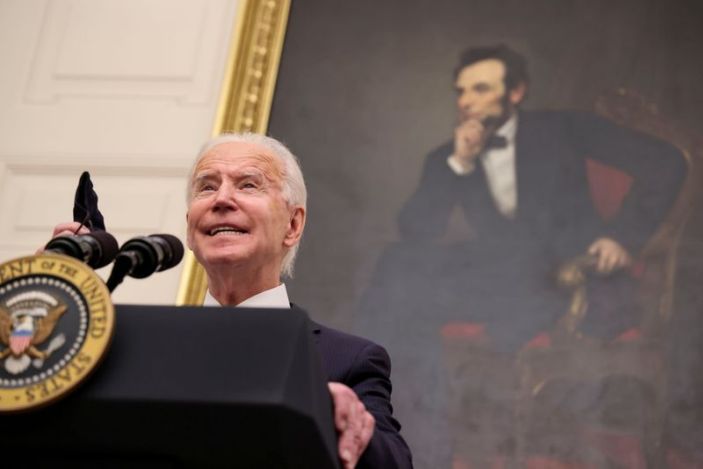On Tuesday Judge Tipton in the Southern District of Texas issued a temporary restraining order (TRO) against the Biden Administration’s 100 day deportation freeze. One of the reasons provided in justification of this TRO was that Biden’s administration acted in an arbitrary and capricious fashion. Judge Tipton wrote:
“DHS, however, never explains how the pause in removals helps accomplish these goals. It remains unknown why a 100-day pause is needed given the allegedly “unique circumstances” to which the January 20 Memorandum alludes. Indeed, despite such unique circumstances, DHS did not state or explain why 100 days specifically is needed to accomplish these goals. The silence of the January 20 Memorandum on these questions indicates that the terms provided for in the Memorandum were not a result of “reasoned decision-making.” Allentown Mack Sales, 522 U.S. at 374, 118 S.Ct. at 826.”
For followers of the judicial hostile takeover of immigration policy during the previous administration, this reasoning does not come as a surprise. Time and again, the Trump Administration would take an action and the courts would find new and exciting ways to stop them. From blocking termination of Temporary Protected Status (TPS) for countries, some that had “temporary” status for nearly two decades, to judicial blocks of raising application fees or enforcing the Public Charge statute, the courts asserted vast control over immigration policy in the United States over the past four years.
One judicial action in particular is the direct forefather of Judge Tipton’s Tuesday TRO, though. That is the curious case of Deferred Action for Childhood Arrivals (DACA), which took a winding road to the desk of Chief Justice John Roberts. Unfortunately, the Chief Justice fancies himself as the new King Solomon of the Supreme Court, except Roberts actually believes splitting the baby in half is sound and sustainable judicial reasoning.
The few, happy few, who slogged through the majority opinion written by Chief Justice Roberts saw most of the ink spilled was directed in the cause of spelling out what Mr. Roberts was NOT doing in his opinion. He was not saying the Trump Administration was barred from using the same discretion the Obama Administration claimed in creating DACA. He was not saying DACA was lawful (which for many seemed to be the first and only question that should be before a court required to interpret our laws). He was certainly not saying precisely what DHS could do to avoid an arbitrary and capricious ruling. Instead, Chief Justice Roberts was saving DACA because, in his opinion, DHS did not adequately consider alternatives to rescinding DACA in toto regardless of whether it was a legal program.
From this judicial seed, the Judge Tipton order grows. The clarion call from the Chief Justice of the Supreme Court was a precedent that agencies must adequately explain their actions to the satisfaction of judges to survive. How can one know what will satisfy a particular judge at a particular time? The government will not know those answers until the latest preliminary injunction or TRO arrives.
In attempting to score political points for the Supreme Court, the Chief Justice opened the door to all manner of judicial activism. There are no objective red lines when it is up to judges to decide if an agency lived up to subjective standards of justification.
To be clear, Judge Tipton’s order is a victory. After four years of judicial activism masquerading as solemn rulings, one can be forgiven for cheering the weapon being wielded in the opposite policy direction. As Judge Tipton pointed out, the law is clear that aliens with a final order of removal are required to be removed. Simply ignoring that law for 100 days is not contemplated in the statute. Furthermore, as another crisis on the border emerges, freezing deportations is akin to dumping gasoline on a raging fire.
However, no one should be blind to the slippery slope the United States is tumbling down with ever increasing velocity. Judges, armed with the reasoning of Chief Justice Roberts, have unchecked power to determine the fate of immigration policy in the United States. Perhaps no issue affects the American people more directly than immigration and now the ability to direct that policy is firmly in the hands of unelected lifetime-appointed judges.






